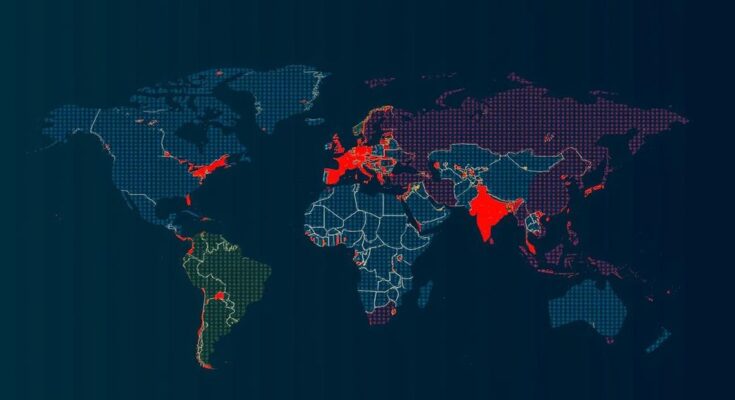The Freeman Spogli Institute scholars emphasized urgent global challenges including climate change, democracy erosion, the Ukraine conflict, and China’s influence during a recent panel discussion. Key insights included the rise of an illiberal axis, the internal threats to democracy, the critical situation in Ukraine, and the need for continued efforts in combating climate change, positioning these issues as interconnected facets of contemporary geopolitics.
Recent discussions conducted by scholars from the Freeman Spogli Institute for International Studies (FSI) highlighted the intricate and multifaceted global challenges currently confronting the world. These threats encompass climate change, challenges to democracy, the war in Ukraine, and increasing tensions with China, underscoring a complex geopolitical landscape. During a recent panel entitled “Global Threats Today: What’s At Stake and What We Can Do About It,” held as part of Stanford University’s Reunion and Homecoming weekend, scholars such as Marshall Burke, Didi Kuo, Amichai Magen, Oriana Skylar Mastro, and Steven Pifer shared critical insights regarding these global dilemmas. The conversation, moderated by Michael McFaul, emphasized the urgent need for awareness and proactive measures in addressing these intertwined issues. One focal point discussed was the emergence of an illiberal coalition comprising Russia, Iran, and North Korea, as articulated by Amichai Magen. This coalition threatens to destabilize the liberal international order that has been crucial for global cooperation since World War II. Magen emphasized the need for a strategic vision to foster peace in regions like the Middle East, particularly through diplomatic solutions, such as advocating for a two-state solution that respects both Israeli and Palestinian rights. Didi Kuo pointed out that while external threats to democracies are often emphasized, the erosion of democratic practices is frequently a result of internal factors, such as the actions of leaders who manipulate the democratic process for their own benefit. Kuo highlighted positive examples where coalitions in various nations have successfully resisted such anti-democratic trends, advocating for adaptable reforms that reinforce democratic values. Moreover, Steven Pifer challenged the narrative surrounding the war in Ukraine, asserting that despite territorial gains by Russia, the staggering human costs to its military suggest that a Ukrainian victory remains feasible. He underscored the importance of unwavering support for Ukraine, asserting that a stable Europe is contingent upon a secure Ukraine. Oriana Skylar Mastro addressed concerns about China’s growing influence, emphasizing that its challenge will persist due to its comprehensive power-building strategies. Mastro called for a reevaluation of U.S. strategies toward Asia to maintain a balance of power that benefits American interests and those of its allies. Lastly, Marshall Burke provided an optimistic view on climate action, indicating significant progress in emissions reduction in the United States while acknowledging that global efforts need to accelerate to address the looming threats posed by climate change. He advocated for increased mitigation and adaptation strategies to manage the inevitable warming the planet will experience. This dialogue underscores the necessity for global cooperation and strategic planning to effectively address the pressing threats facing our world today.
The context of this discussion is rooted in the myriad of interconnected global threats that are evolving in the current geopolitical milieu. Notably, climate change continues to manifest significant implications for environmental stability, while democracy appears to be under siege from both internal erosions and aggressive posturing from authoritarian regimes globally. The ongoing war in Ukraine and the geopolitical tensions with China further compound these challenges, necessitating a comprehensive understanding of their interrelations. Scholars from Stanford’s FSI seek to illuminate these issues, advocating for informed responses by political leaders and the public alike.
In conclusion, the panel discussions highlighted five principal threats currently impacting the global landscape: the emergence of a new illiberal coalition undermining the liberal order, internal challenges to democratic practices, the necessity of supporting Ukraine amidst its conflict with Russia, the persistent threat posed by China’s rise, and the progress yet remaining on climate change. The collective insights from these scholars underscore the urgency for a proactive, informed, and cooperative approach to navigate these threats effectively.
Original Source: fsi.stanford.edu




